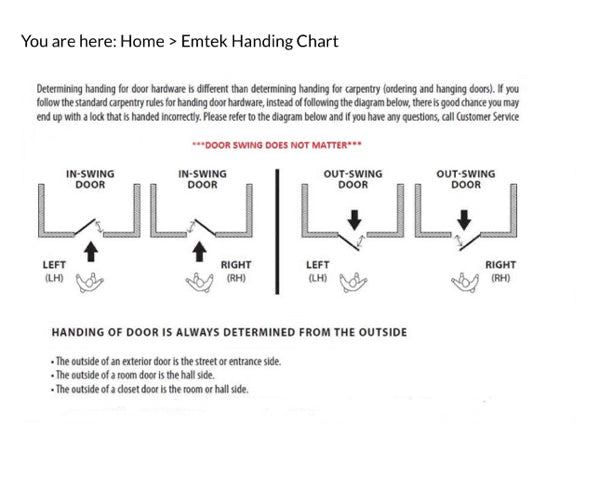Your Guide to The US’s Most Popular Locks
Knowing which type of lock will work best for different applications isn’t always as straightforward as it sounds, and sometimes it can be difficult to know which offers the best security, under the circumstances.
To help you differentiate between them, we’ve compiled a brief guide to the U.S.’s most popular locks:
Knob locks
Arguably the most common lock type, these are used both residentially and commercially, and are best suited to interior doors; security experts recommend that they not be used as the sole line of defense for exterior doors. The locking mechanism can be found inside the knob itself, making them easy to break, and therefore effective only for doors such as leading to a bedroom or closet.
Lever handle locks
Akin to knob locks, these are typically found in commercial applications, and have push down handles instead of a turning knob. With the locking mechanism found in the handle, they are often easier to infiltrate and break than a knob, and applying a good deal of pressure to the handle can make it break.
Dead bolts
Among the most common and reliable locks for both residential and commercial properties, deadbolts are installed on exterior doors. These come as single, or double-cylinder deadbolts, with single cylinder being the most popular choice for homes. With a knob for unlocking on the inside, a key has to be used to unlock it from the outside.
Double cylinder deadbolts give an added layer of protection since they must be unlocked using a key from the inside, and the outside. However, the fact that a key must be left inside the property at all times, can be hazardous in the event of an emergency.
Choose a lockable thumbturn on the other hand, and you get the best of both worlds. Featuring a thumbturn on the inside, which can be used to unlock the door, there is also a keyhole on the outside, and the thumbturn can be locked, if required. This option gives the benefits of both single cylinder deadbolts and double cylinder, and none of the disadvantages.
Combination locks
These can be mechanical and digital, with mechanical locks typically only accepting one PIN to access a property, while digital locks can be programed to accept many. This lock eliminates the need for a key, but does give some users the added stress of trying to remember a PIN code.
Electronic card locks
Often used by businesses with multiple employees, they can also prove effective in multi-residential buildings, and restrict access to certain areas for those without a card to tap or swipe. Should a swipe card be lost or stolen, it can easily be deactivated and a log can also be kept of who is using the card, where, and when. Reprogramming of the cards is simple should a security issue crop up, with no need for them to be replaced, making the system ultra-efficient.
For more detailed information about locks, or for up-to-date advice on which security system would be best for you, reach out to your local locksmith.

